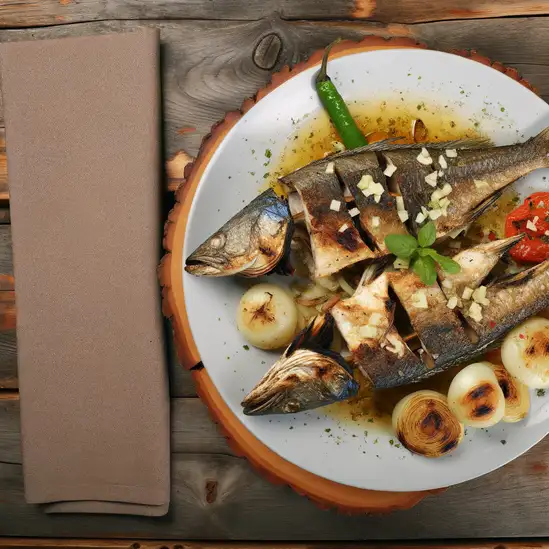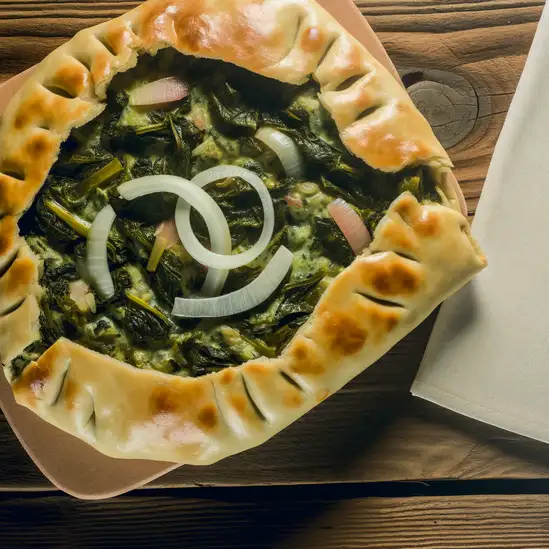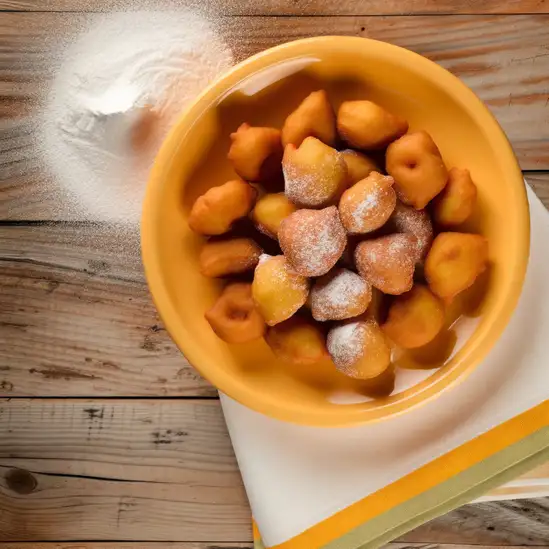



If you ever find yourself wandering the Adriatic coast,Crikvenica is one of those places that wraps you in a gentle,sun-soaked hug the moment you arrive. The town hums with a laid-back energy,where the scent of salty sea air mingles with the sweet aroma of blooming bougainvillea. Strolling along the waterfront,you’ll hear the soft lapping of waves against the harbor and the distant chatter of locals sharing stories over coffee. It’s the kind of place where time slows down just enough for you to savor every moment. What really makes Crikvenica special is its blend of old-world charm and vibrant seaside life. The pastel-colored buildings with their red-tiled roofs create a picturesque backdrop,while the narrow streets invite you to explore little shops selling handmade crafts and fresh pastries. The local markets burst with colors and flavors—imagine biting into a perfectly ripe fig or tasting freshly caught seafood grilled right on the beach. There’s a warmth in the people here,too; they’re proud of their town’s history and eager to share it,whether through a friendly chat or a recommendation for the best spot to watch the sunset. Evenings in Crikvenica have their own magic. The promenade lights up softly,and the air fills with the sound of live music drifting from cozy taverns. Sitting at a seaside café with a glass of local wine,you can watch fishing boats bobbing gently in the harbor,feeling completely at ease. It’s a place that invites you to slow down,breathe deeply,and soak in the simple pleasures of coastal Croatian life.
The information on this page is currently being reviewed by Tripkliq and should be used as a guide only
Eng word: Hello
Eng pronunciation: Bohk
Local language: Bok
Eng word: Goodbye
Eng pronunciation: Doh-vee-jen-ya
Local language: Doviđenja
Eng word: Thank you
Eng pronunciation: Hvah-lah
Local language: Hvala
Eng word: How much
Eng pronunciation: Koh-lee-koh
Local language: Koliko
Eng word: Toilet
Eng pronunciation: Toh-ah-let
Local language: Toalet
Eng word: Help me
Eng pronunciation: Poh-moh-zee mee
Local language: Pomozi mi
Eng word: Yes
Eng pronunciation: Dah
Local language: Da
Eng word: No
Eng pronunciation: Neh
Local language: Ne
Eng word: Excuse me
Eng pronunciation: Oh-proh-stee-teh
Local language: Oprostite
Grad Crikvenica has its origins in the ancient Roman settlement of Ad Turres, which was an important stop on the Roman road connecting Aquileia and Salona.
The modern town of Crikvenica was officially founded in 1412 by Nikola IV Frankopan, a member of the influential Frankopan family, who built a monastery and church dedicated to the Assumption of the Blessed Virgin Mary.
The Crikvenica Monastery, established in the 15th century, played a significant role in the town's development and served as a cultural and educational center for centuries.
Crikvenica has been a popular tourist destination since the late 19th century, when the first hotels and health resorts were established, attracting visitors seeking the therapeutic benefits of the Adriatic Sea.
The Crikvenica Riviera, a stretch of beautiful beaches and clear waters, has been a major draw for tourists, contributing to the town's reputation as a premier holiday destination in Croatia.
St. Anthony's Church, built in the 17th century, is one of Crikvenica's most important religious landmarks and showcases beautiful Baroque architecture.
Crikvenica's Aquarium, established in 2001, is a popular attraction that features a variety of marine life from the Adriatic Sea, providing educational and entertaining experiences for visitors.
The Love Path (Ljubavna cestica) is a scenic walking trail that offers stunning views of the surrounding landscape and the Adriatic Sea, making it a favorite spot for both locals and tourists.
The Crikvenica Town Museum, located in the heart of the town, offers a fascinating glimpse into the region's history, culture, and traditions through its diverse exhibits and collections.
In Grad Crikvenica, the most common Power Adaptor is Type C, Type F.



A traditional dish made by slow-cooking meat and vegetables under a bell-like lid, resulting in tender and flavorful meals.

Grilled fish, typically served with a drizzle of olive oil and a side of seasonal vegetables, highlighting the local catch.

A savory pie filled with Swiss chard and onions, encased in thin dough, baked until crispy, and often enjoyed as a snack or appetizer.

Small, sweet doughnuts flavored with citrus and often dusted with powdered sugar, popular during festive seasons.

A traditional Dalmatian beef stew marinated in red wine and spices, slow-cooked to perfection, often served with gnocchi.

Local shrimp from the Adriatic Sea, often grilled or prepared in a seafood risotto, showcasing the fresh flavors of the region.

Shellfish cooked in a rich tomato and wine sauce, typically served with crusty bread for dipping.
If you ever find yourself wandering through Split,it’s like stepping into a living,breathing storybook where ancient history and vibrant modern life dance together effortlessly. The moment you stroll along the Riva promenade,the salty breeze from the Adriatic mingles with the aroma of fresh espresso and grilled seafood wafting from nearby cafés. Locals chat animatedly in the sun-dappled squares,their laughter blending with the distant hum of boats bobbing gently in the harbor. There’s a laid-back energy here that feels both timeless and alive,inviting you to slow down and soak it all in.
Split’s heart beats strongest in Diocletian’s Palace,a sprawling Roman fortress that’s less a museum and more a neighborhood where people live,shop,and gather. Walking through its ancient stone alleys,you’ll catch glimpses of colorful markets,artisan shops,and cozy taverns tucked into centuries-old walls. At night,the city transforms as lanterns flicker on,and the sound of live klapa singing—traditional a cappella harmonies—drifts through the air,wrapping you in a warm,soulful embrace.
What really makes Split unforgettable is how effortlessly it blends the old with the new. You can savor a plate of fresh octopus salad while watching fishermen haul in their catch,then wander to a rooftop bar for a cocktail as the sun sets behind the islands. It’s a place where every corner tells a story,every meal feels like a celebration,and every moment invites you to become part of its ongoing tale.
If you ever find yourself wandering through the sun-drenched streets of Dubrovnik,you’ll immediately feel like you’ve stepped into a living storybook. The city’s ancient stone walls rise proudly against the sparkling Adriatic,and as you stroll along the marble-paved Stradun,the salty sea breeze mingles with the scent of fresh pine and blooming bougainvillea. There’s a rhythm here—a gentle hum of life where history and modern charm dance together effortlessly.
Dubrovnik’s character is woven into every corner:the clatter of café cups,the murmur of locals chatting in cozy taverns,and the distant call of seagulls overhead. You can almost taste the city in the air—briny and fresh,with hints of grilled seafood and ripe figs from the markets. Sitting at a seaside restaurant,watching the sun dip behind the fortress walls,you’ll savor dishes bursting with Mediterranean flavors,paired with a glass of crisp Croatian white wine.
What makes Dubrovnik truly special is how it balances its rich past with a vibrant present. The city’s narrow alleys invite exploration,revealing tucked-away galleries,artisan shops,and lively squares where music spills out into the streets. Whether you’re tracing the footsteps of ancient mariners or simply soaking up the golden light on a quiet terrace,Dubrovnik feels like a warm embrace—inviting,timeless,and utterly unforgettable.
If you ever find yourself wandering the Dalmatian coast,Zadar is one of those places that sneaks up on you with its quiet charm and unexpected magic. The moment you step onto its ancient stone streets,there’s this warm,timeless feeling—like the city is gently humming a tune just for you. The salty breeze from the Adriatic mingles with the scent of fresh pine and blooming jasmine,wrapping around you as you stroll along the waterfront. It’s a place where history isn’t just in museums; it’s alive in the crumbling Roman ruins,the medieval churches,and the lively squares where locals gather to chat and sip coffee.
What really sets Zadar apart is its playful spirit. You’ll hear it in the waves as they dance through the Sea Organ,an extraordinary installation that turns the sea’s movement into haunting melodies. And just a few steps away,the Sun Salutation lights up the night with a mesmerizing display of colors,making the waterfront feel like a celebration of nature and art. Grab a seat on the stone benches,watch the sun dip below the horizon,and you’ll understand why Alfred Hitchcock once called Zadar the most beautiful sunset in the world.
The city’s vibe is relaxed but vibrant,with cozy konobas serving up fresh seafood and local wines that taste like the essence of the region. Whether you’re wandering through the bustling market,exploring narrow alleys,or simply soaking in the views from a café terrace,Zadar invites you to slow down,breathe deeply,and savor every moment.
If you ever find yourself wandering the Istrian coast,Pula is the kind of place that wraps around you like a warm,familiar hug. There’s this effortless blend of ancient history and laid-back seaside charm that makes the city pulse with life. Imagine strolling through streets where Roman ruins peek out from behind cozy cafes,their stone walls whispering stories of gladiators and emperors. The air carries a salty breeze mixed with the aroma of fresh seafood grilling nearby,and the chatter of locals and tourists blends into a lively,welcoming hum.
What really sets Pula apart is its character—it''s not just a city frozen in time but one that wears its history with pride while embracing the present. You’ll find yourself lingering in the shadow of the massive amphitheater,marveling at how it’s still so alive,hosting concerts and events that make the ancient stones vibrate with modern energy. The narrow alleys invite you to explore little artisan shops and family-run trattorias where you can savor Istrian truffles,fresh olives,and a glass of local Malvazija wine that tastes like sunshine.
Evenings in Pula have a special magic. The golden light softens the city’s edges,and the sea reflects a palette of pinks and purples. Sitting by the harbor,you can hear the gentle lapping of waves and the distant laughter from a nearby tavern. It’s a place that feels both timeless and alive,where every corner invites you to slow down,breathe in the moment,and soak up a culture that’s as rich as the land itself.
If you wander into Rijeka,you’ll immediately feel its pulse—a lively,salty breeze mingling with the hum of a bustling port city that’s unapologetically itself. It’s not polished like some of Croatia’s more famous coastal towns,but that’s exactly what makes it so magnetic. The streets buzz with a mix of locals chatting over coffee,the clatter of trams,and the occasional distant call of seagulls. You can almost taste the sea in the air,a briny freshness that pairs perfectly with a glass of local Malvazija wine at a cozy café.
Rijeka wears its history on its sleeve,from the grand Austro-Hungarian architecture to the colorful street art that pops up in unexpected corners. The city’s character is a blend of old-world charm and modern creativity,with a vibrant arts scene that spills into its festivals and galleries. Strolling along the waterfront,you’ll catch fishermen unloading their catch,the scent of grilled fish wafting from nearby taverns,and the laughter of families enjoying the evening.
What really sticks with you is Rijeka’s warmth—people here are genuine,proud of their city’s quirks and stories. Whether you’re exploring the lively market,climbing up to Trsat Castle for sweeping views,or simply soaking in the rhythm of the harbor,Rijeka invites you to slow down and savor its unique blend of sea,culture,and everyday life. It’s a place that feels like a well-kept secret,but one you’ll want to shout about once you’ve been.
Imagine stepping into a sun-drenched town where lavender-scented breezes mingle with the salty kiss of the Adriatic Sea—that’s Hvar for you. From the moment you wander through its ancient stone streets,there’s a relaxed yet vibrant energy that wraps around you like a warm embrace. The sunlight bounces off terracotta rooftops,and the sound of laughter spills out from cozy cafés where locals sip espresso and chat animatedly. It’s a place where history and modern life dance effortlessly together.
As you stroll along the harbor,sleek yachts bob gently beside fishing boats,and the air carries the faint aroma of grilled seafood and fresh herbs. The town’s medieval walls and the imposing fortress overlooking the bay tell stories of centuries past,while the lively markets burst with ripe figs,olives,and sun-ripened tomatoes. At sunset,the sky blazes in shades of pink and gold,and the waterfront buzzes with music drifting from open-air bars,inviting you to linger just a little longer.
What makes Hvar truly special is its blend of authenticity and joie de vivre. It’s not just a place to see but a place to feel—whether you’re savoring a glass of local Plavac Mali wine,exploring hidden coves by boat,or simply watching the world go by from a shaded terrace. Hvar’s charm lies in its ability to make you slow down,breathe deeply,and soak in the simple pleasures of life by the sea.
Scammers may install skimming devices on ATMs to steal card information from unsuspecting tourists.
Tourists may be offered unfavorable exchange rates or charged hidden fees at unofficial currency exchange offices.
Scammers may create fake rental listings online, asking for deposits for non-existent apartments or rooms.
Unlicensed individuals may offer guided tours, providing little value or incorrect information while charging high fees.
Some taxi drivers may overcharge tourists by not using the meter or taking unnecessarily long routes.
Scammers may pose as parking attendants, charging tourists for parking in free or public spaces.
Some restaurants may inflate bills by adding items not ordered or charging excessive 'service fees' for tourists.
Street vendors may sell counterfeit goods or overcharge tourists for low-quality items.
The possession, use, and distribution of illegal drugs are strictly prohibited in Grad Crikvenica, Croatia. Croatia has stringent drug laws, and violations can result in severe penalties, including fines and imprisonment. Tourists should avoid any involvement with illegal substances and be aware that even small quantities can lead to legal consequences.
In Grad Crikvenica, Croatia, smoking is generally allowed in outdoor public spaces. However, smoking is prohibited in enclosed public areas such as restaurants, bars, and public transportation. Some establishments may have designated smoking areas. It is always a good idea to look for 'No Smoking' signs and adhere to local regulations to avoid fines.
Vaping in Grad Crikvenica follows similar regulations to smoking. It is generally allowed in outdoor public spaces but prohibited in enclosed public areas. Some establishments may have specific rules regarding vaping, so it is advisable to check for any signs or ask the staff. Always be considerate of others and follow local guidelines.
What are other people saying about Grad Crikvenica?
Recent Social posts about Grad Crikvenica
There is nothing to show you for now.